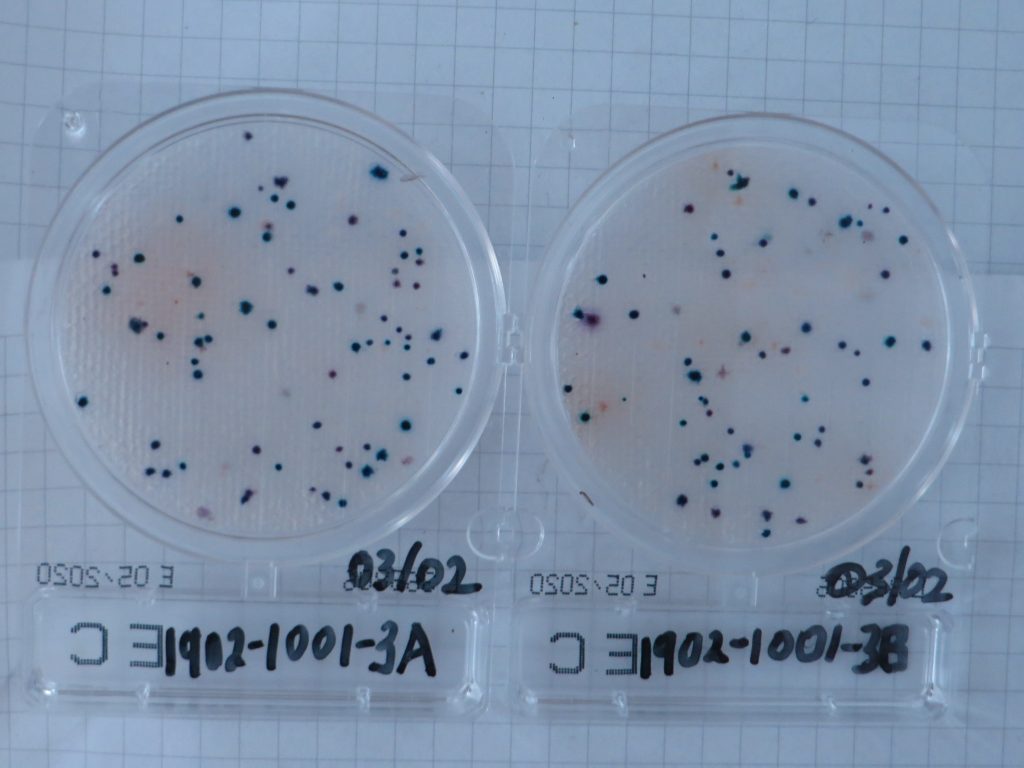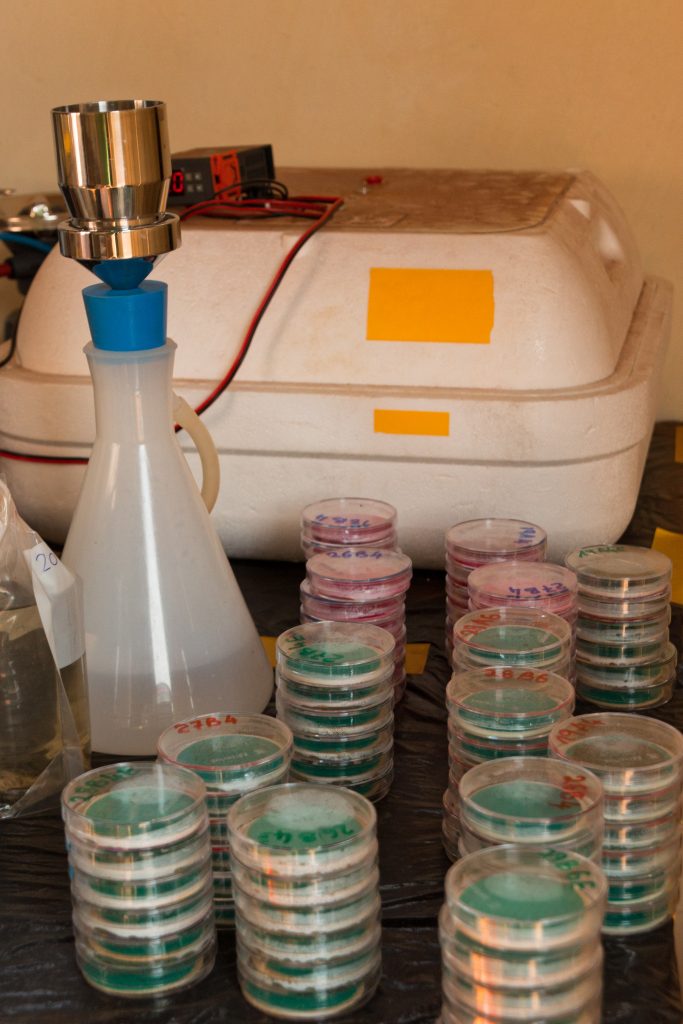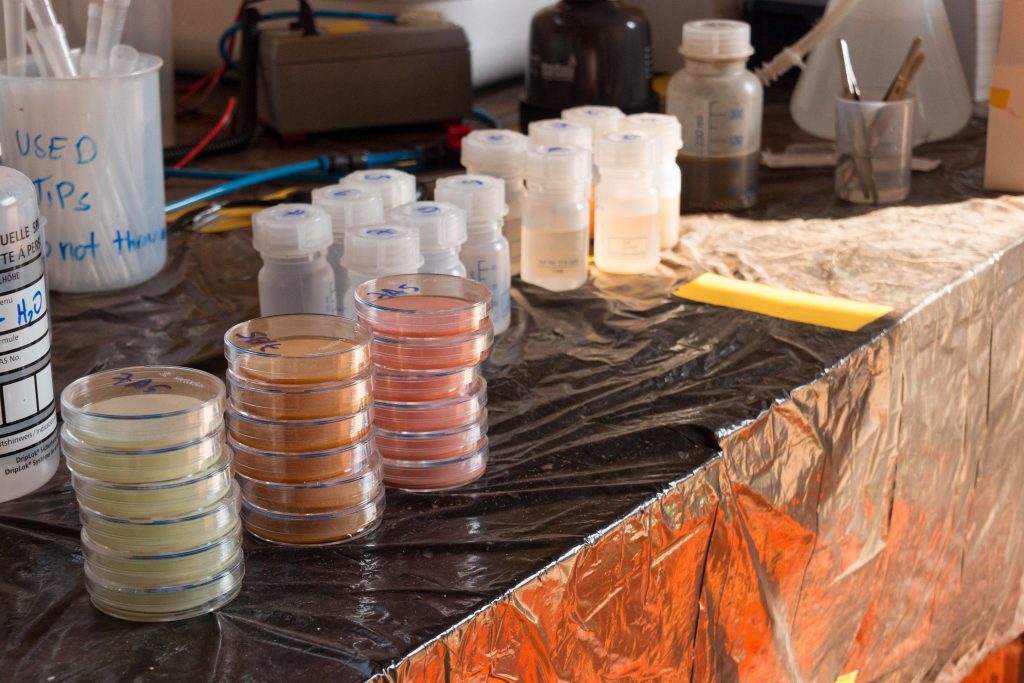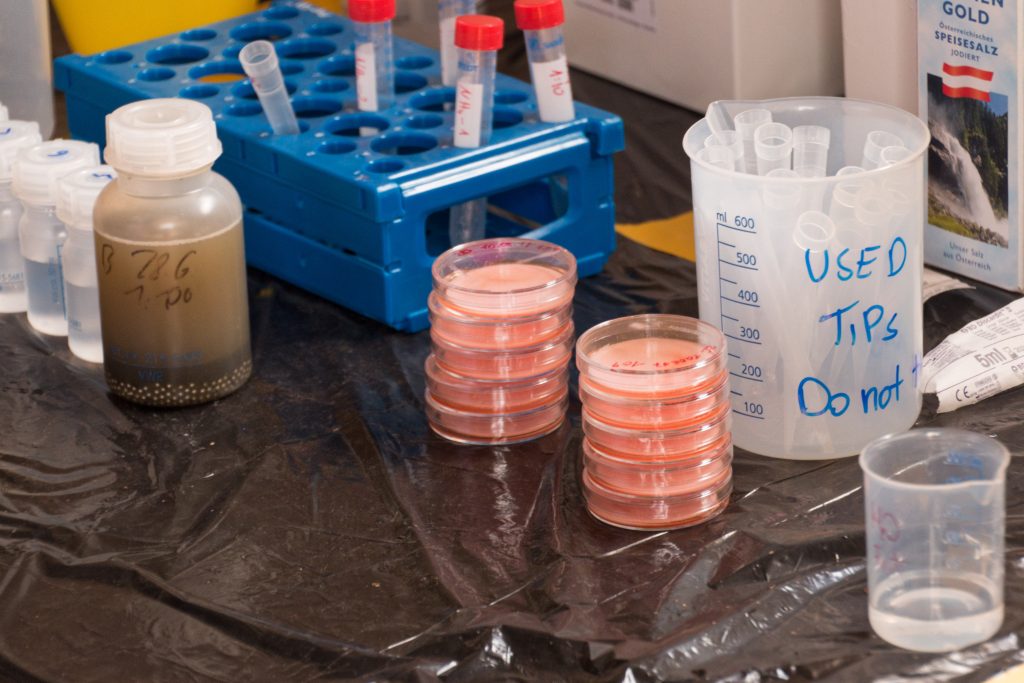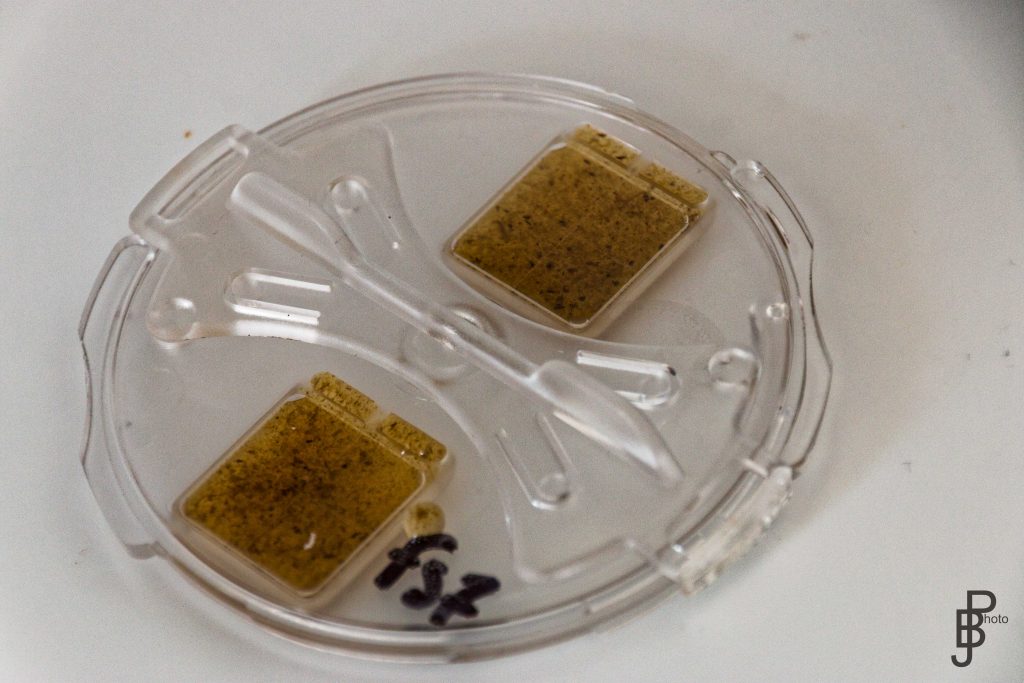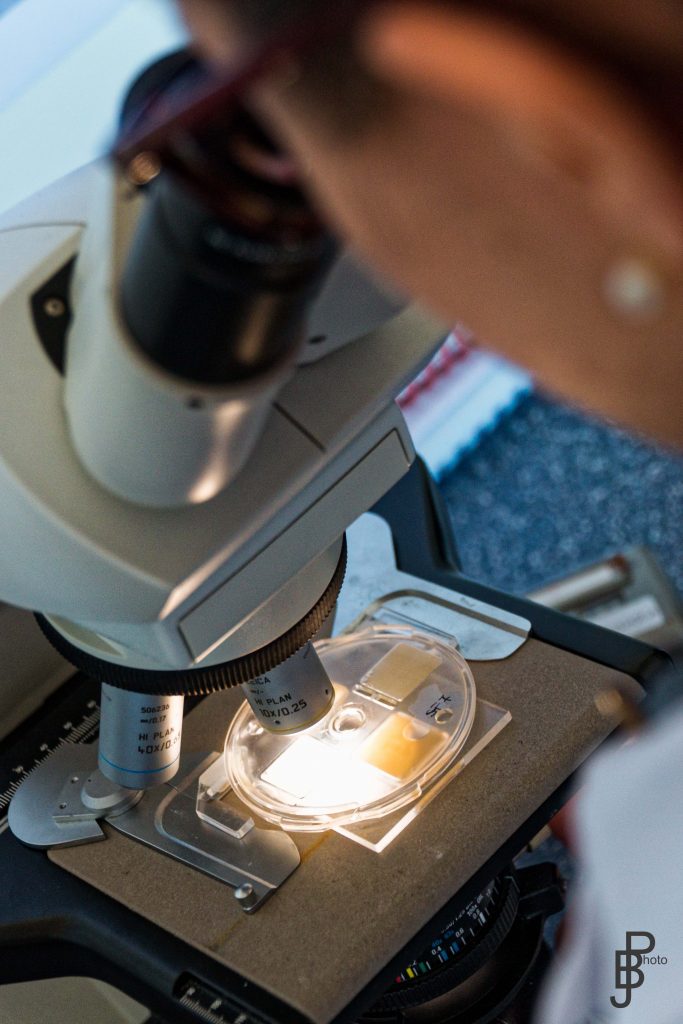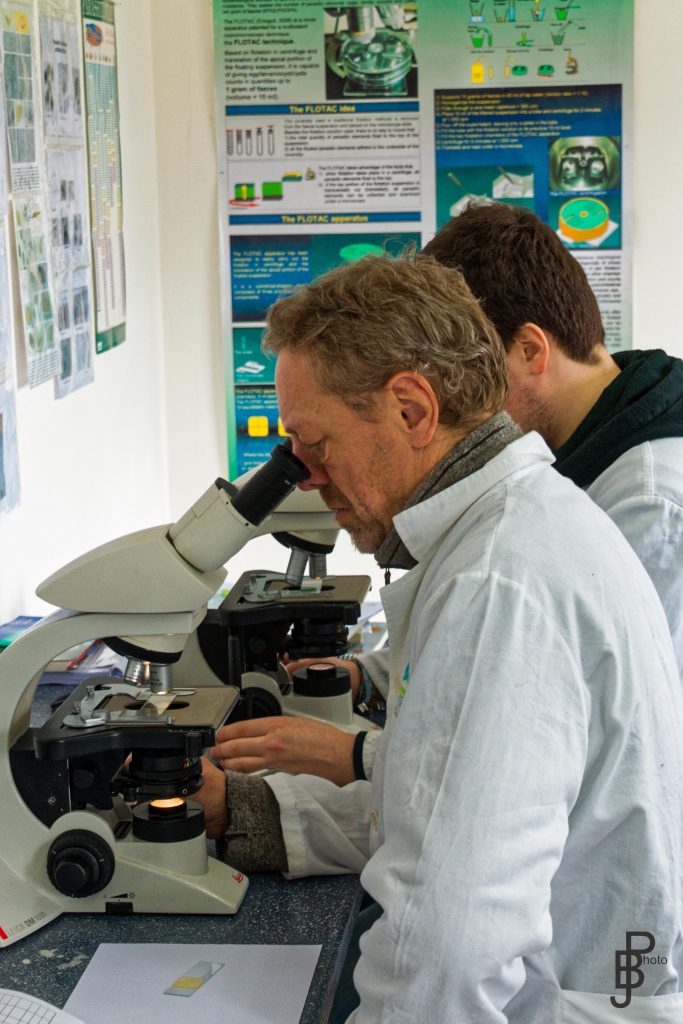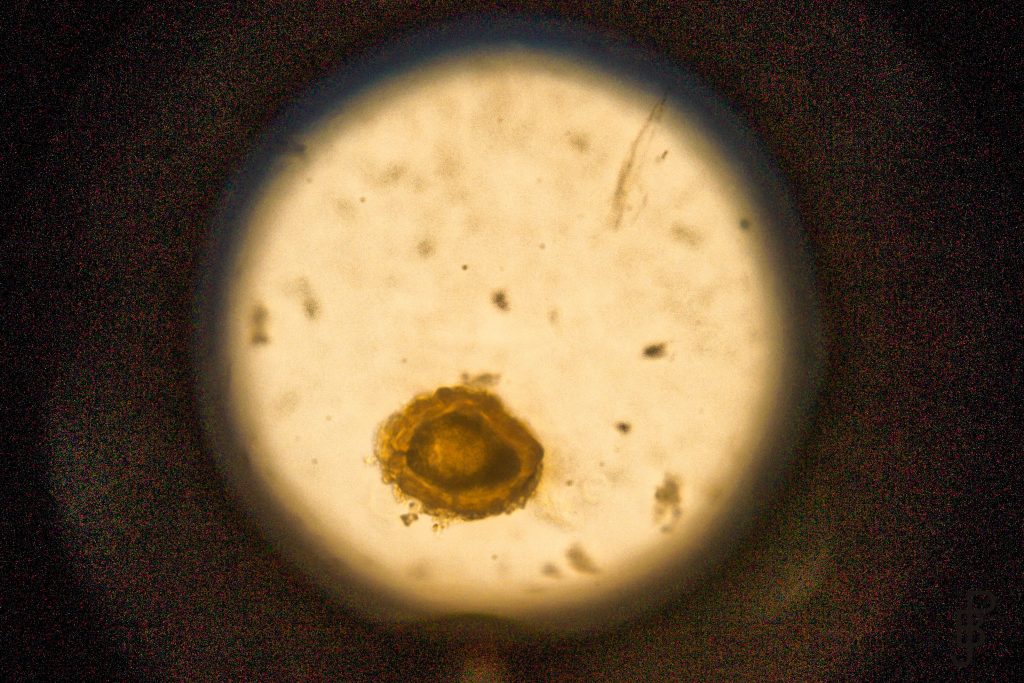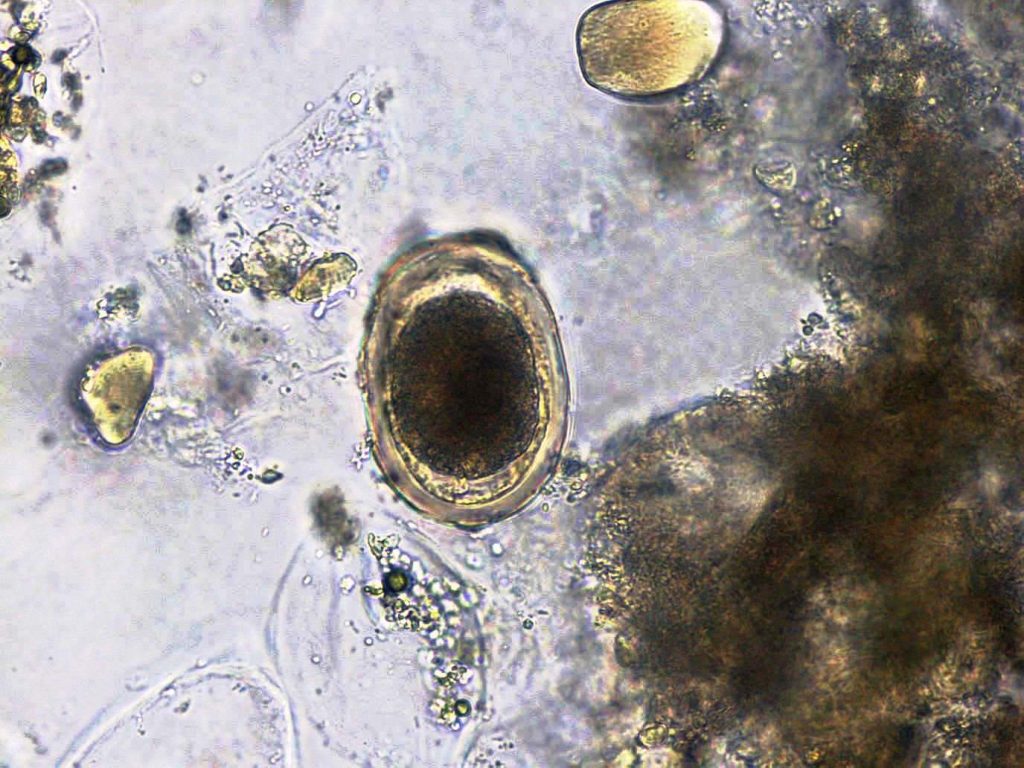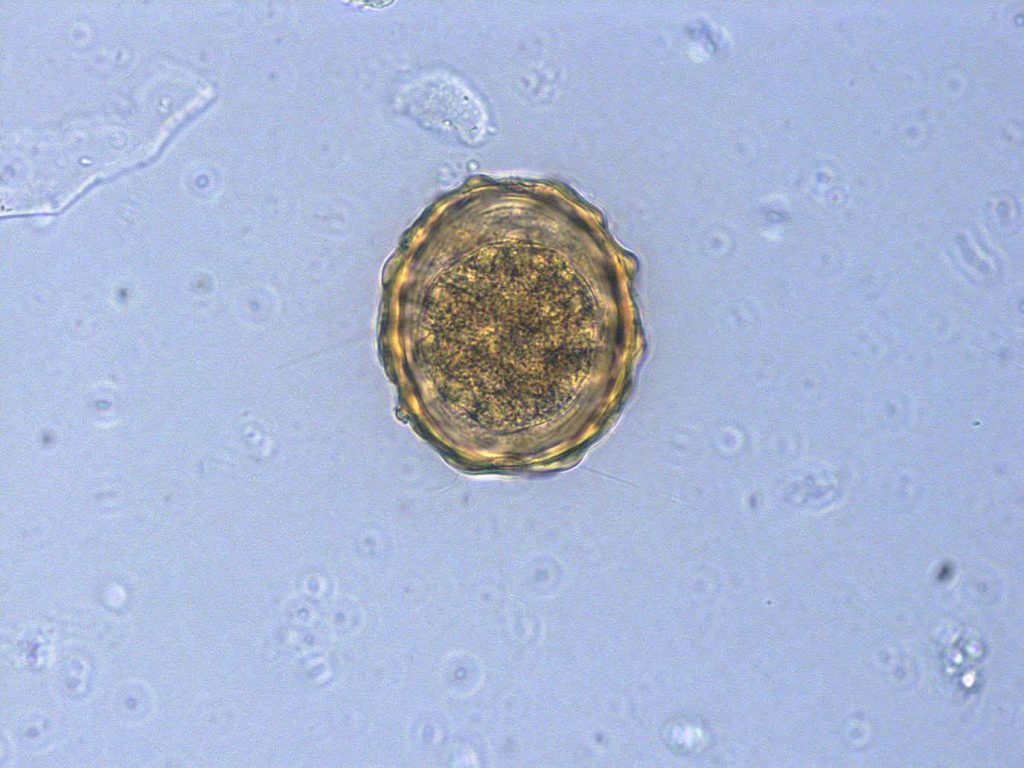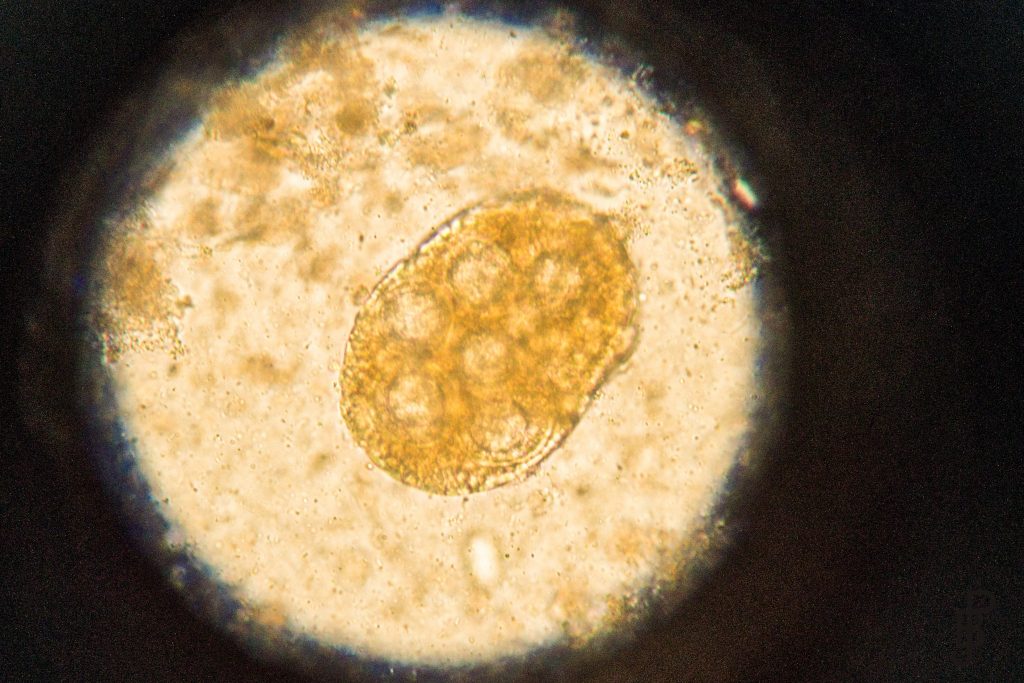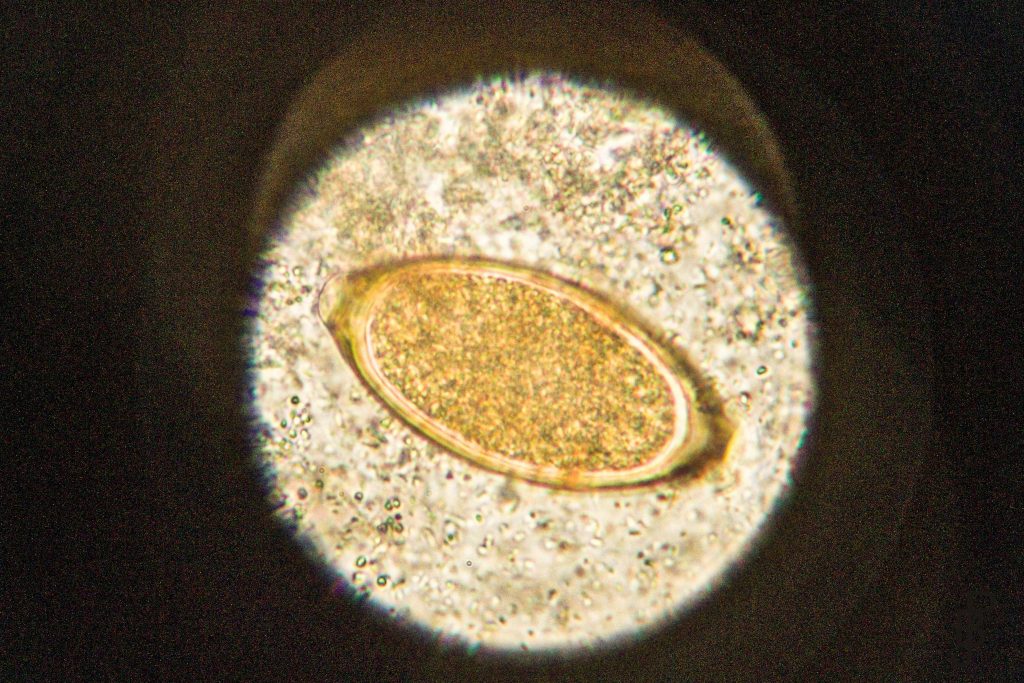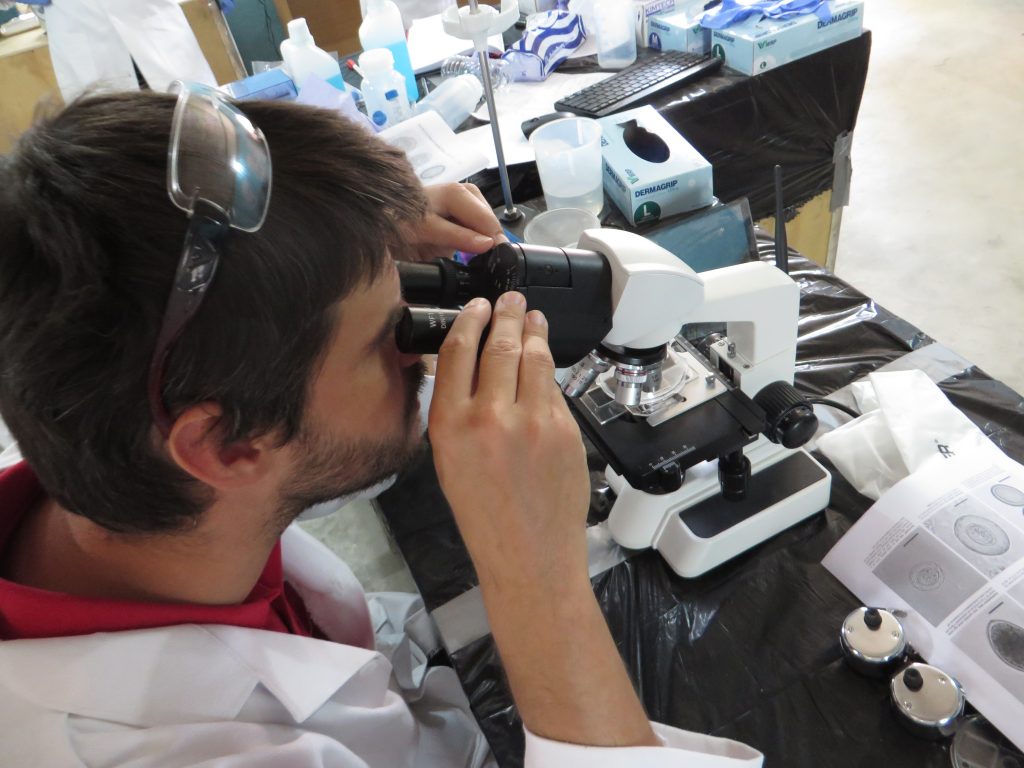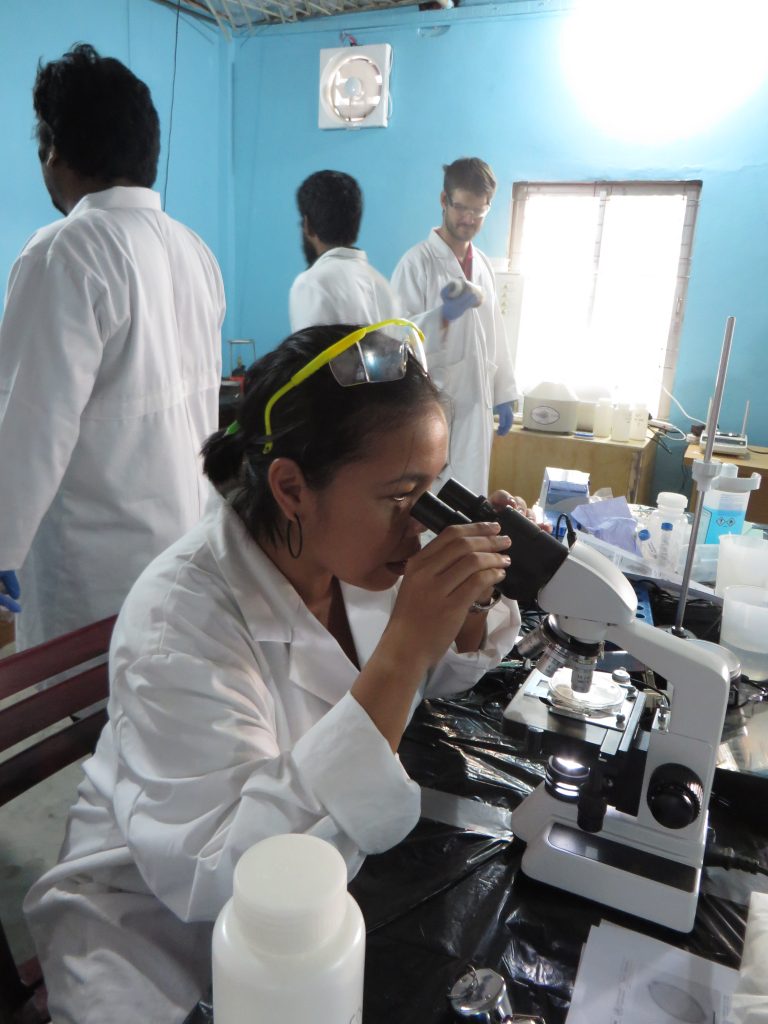The Faecal Sludge Field Laboratory allows the analysis of a wide range of parameters needed for the monitoring of faecal sludge treatment plants. The included parameters can be separated in two large categories.
- Public health parameters are mainly used for effluent quality monitoring
- Process control parameters are used to monitor the each treatment process and for effluent quality monitoring
Public Health
Bacteriological indicator parameters
The concept of bacteriological indicator organisms has been developed in the United Kingdom in the 19th century for monitoring of drinking water quality. In this concept easily cultivable bacteria are used, which are always excreted with human faeces, but mainly are not pathogenic. Faecal pathogenic organisms are often hard to cultivate and numerous tests would need to performed to cover the whole range.
In the Faecal Sludge Field Laboratory three different bacteriological indicator organisms are analysed.
- Escherichia coli – is the oldest and most widely used indicator parameter, however in tropical and warm climates it can appear as environmental germ.
- Enterococci – is another indicator commonly used in water quality monitoring, mainly because it is only excreted by humans and is normally not found in pristine environment.
- Salmonella – is a parameter often employed to ensure the safety of faecal sludge and manure when employed as soil conditioner.
Hemlinth eggs
Soil transmitted helminths (CDC & WHO explanation) are considered an important public health parameter in sanitation. The Faecal Sludge Field Laboratory uses a microscopy detection methodology (FLOTAC) originally developed by the Department of Veterinary Parasitology of the University of Naples, Frederico II and has been modified for use in the field laboratory.
The equipment and training of the Faecal Sludge Field Laboratory focuses on the detection of the eggs of the following three helminth species.
Especially during emergency response operation, with faecal sludge treatment plants being close to the served population and the beneficiaries being under a high stress load, monitoring treatment plant effluents for helminth eggs is considered highly important.
Process Control
The following list of process control parameters are included in the Faecal Sludge Field Laboratory.
With the following parameters most treatment processes can be monitored. In a deployment version of the Faecal Sludge Field Laboratory the included parameter list should be adapted to the specific treatment plant. This adaption reduces the cost of the laboratory, shipping weight and avoids having unused equipment sitting on a shelf. The actual selection also depends on the parameters specified in local regulations on treatment plant effluent quality.
- Chemical oxygen demand
- Biochemical oxygen demand
- Ammonia
- Nitrate
- Nitrite
- Total nitrogen
- Orthophosphate
- Total phosphorus
- Chlorine
- pH – value
- Conductivity
- Soil moisture
- Dissolved oxygen
- Temperature
- Total solids
- Total dissolved solids
- Ash content
- Sludge volume & sludge volume index
- Biogas composition
- Biogas potential
- Volatile fatty acid/alkalinity titration
